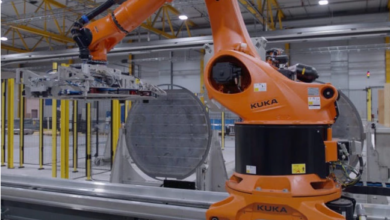Rinnai develops hydrogen combustion technology for residential water heaters
For hydrogen-burning water heaters, the spread of hydrogen infrastructure is a prerequisite for achieving carbon neutrality.

Rinnai Corporation has successfully developed the world’s first 100% hydrogen combustion technology for residential water heaters.
Rinnai has spent many years developing gas appliances and accumulated exceptional combustion and fluid control technologies in the process. Deploying these technologies, Rinnai has succeeded in the development of a water heater powered by hydrogen, which is sought after as a clean fuel source with zero CO2 emissions, in a way that addresses the issues of “explosion risk” and “combustion stability.”
In November 2021, Rinnai announced Innovation Manifesto 2050 (RIM 2050), which describes its commitment to carbon neutrality. Recognizing a growing sense of crisis over global warming around the world, all industries are accelerating efforts to realize a decarbonized society.
Among its efforts to reduce CO2 emissions, Rinnai places high emphasis on emissions from product usage after sale, which account for an overwhelmingly 95% of total CO2 emissions. Beyond developing energy-saving products, such as high-efficiency water heaters that are still in widespread use today, its major goal is to develop products that emit zero CO2. For this reason, Rinnai has been developing water heaters that burn hydrogen to boil water.
Rinnai celebrated its 100th year operation in 2020. Since its founding, Rinnai has conducted research into combustion technology and technologies to control gases, such as air and fuel, and gained experience in practical applications that led to the development of a 100% hydrogen water heater. This represents the world’s first successful development of 100% hydrogen combustion technology for residential applications, where stricter usage conditions apply. It will contribute significantly to realizing carbon neutrality in residential water heaters, which account for a large proportion of CO2 emitted by household appliances.
Major countries are aiming for zero CO2 emissions by 2050 and taking measures to promote renewable energy and the use of hydrogen as an energy source. In Australia, for example, initial steps are being taken with a view to using 100% hydrogen as a residential energy source, and Rinnai plans to start demonstration tests there in October 2022 to make this a reality. From there, it will further enhance the technology and improve the reliability of hydrogen water heaters for mass production in line with the spread of hydrogen infrastructure around the world.
